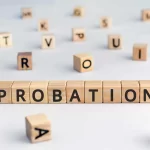Testate succession is when a person passes away having left a will. Testate succession involves a personal representative or executor appointed in the will to obtain a grant of probate.
In proving the validity of a Will, the Court must be satisfied that the Will complies with the formal requirements of the law and that the Maker had the capacity to make the Will. The Maker of the Will appoints a Personal Representative referred to as the Executor, to administer the Estate and distribute the same to the persons entitled under the Will. The said Executor is mandated to apply for a Grant of Probate upon the death of the Maker.
Grant of Probate can be defined as a legal document that authorizes an Executor(s) to manage the Estate of a deceased person in accordance with the provisions of the deceased’s will. The said Executor can either accept or decline to be the Estates Executor. If this happens, the Honorable Court may appoint one.
A Grant of Probate shall be in the form of a certificate issued by the High Court confirming that the Deceased’s Will has been proved as a valid Will and the executor(s) can proceed with the execution this means the executor has the power to collect and preserve the Estate; and pay the just debts and liabilities of the Estate.
The application for a Grant of Probate is by way of a Petition. The said Petition contains: –
- the full particulars of the Deceased, including; names, date and place of death, last known place of residence, and relationship of the Applicant with the Deceased;
- a full inventory of all the Assets and Liabilities of the Deceased;
- the names and present addresses of the Executor(s) and the postal and residential addresses of the Applicant.
The Petition is accompanied by: –
- the original Will;
- original Death Certificate;
- original Searches in respect of the Deceased’s immovable Property;
- copies of the identification documents for the Executor and the Beneficiaries named under the Will;
- letter from the Area Chief confirming the Beneficiaries entitled under the Deceased’s Estate.
Upon filing and payment of the requisite fees, the petition is advertised in the Kenya Gazette. Any person with an objection to the grant of probate has an opportunity at this point to raise the same in court. Thirty days after Gazettement, an application will be made to the High Court for the extraction of the signed and sealed Grant of probate which will indicate the executors as the lawfully appointed executors.
After the signed and sealed Grant of Probate is issued, the executors shall wait for a statutory period of six months before applying for the Grant to be confirmed.
Once the executors have been issued with a Certificate of Confirmation of Grant by the Court, they can then proceed to administer the deceased’s estate. Upon Confirmation of Grant, the Executor has a duty to: –
- to complete the administration of the Estate within six months from the date of Confirmation of the Grant, or such longer period as the Court may allow;
- to produce to the Court a full and accurate account of the completed administration of the Estate;
- to produce to the Court, if so required, a full and accurate inventory of the Assets and Liabilities of the Deceased and a full and accurate account of all dealings therewith up to the date of the account




